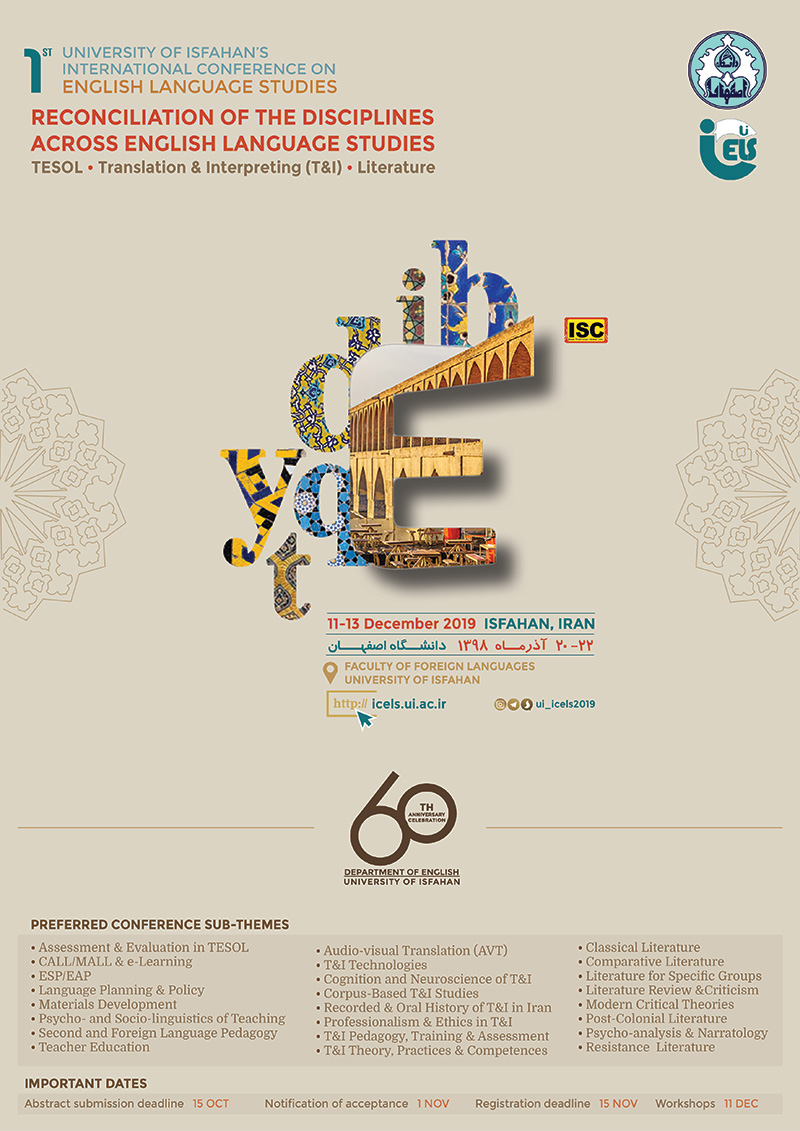
Into the Book: On Teaching Reading Strategies Through Online Games and Its Effects on the L2 Reading Comprehension Ability of Iranian EFL Learners
نویسندگان :
Hamed Babaie Shalmani ( Department of English Language, College of Humanities, Rasht Branch, Islamic Azad University, Rasht, Iran ) , Milad Habibnejad Mordabsary ( Department of English Language, College of Humanities, Rasht Branch, Islamic Azad University, Rasht, Iran )
چکیده
Over the past decades, the development and use of educational games have gained unprecedented momentum to the extent that practitioners now need to rethink current practices and to show wider recognition for the potentiality of games for enhanced learning in game-based learning (GBL) environments. Educational games have defined learning outcomes and seek to balance the learning material to be taught with activities that engage learners in competition, interaction, and even collaboration with the computer or other peers via the computer. The field of applied linguistics has also witnessed a multitude of gaming applications designed to harness the skills required of language learners to communicate fluently, accurately, and appropriately in real life communication. Whereas there are games with direct learning outcomes, very few have focused on strategies required for achievement of learning objectives. Given a paucity of games targeting teaching such strategies, the present article reports on the results of an experiment where the promising effects, if any, of an educational online game called Into the Book were examined on the learning of reading strategies and ultimately the comprehension of English reading passages among Iranian EFL learners. To this end, 30 EFL students were randomly assigned to two equivalent study groups and then received treatment on English reading strategies under one of two conditions: The experimental group was required to play with the game, thus practicing and applying six common reading strategies to the reading of L2 texts. The summarizing strategy, for example, would require the participants to watch animated characters narrating a story and then drag and drop the main ideas into a virtual box appearing on the screen. The visualizing strategy, on the other hand, would require the learners to use the in-game stationary tools to create mental maps that could help them visualize the interrelationships between different concepts as they approached the reading texts. The other strategies, likewise, would require learners to interact with various objects in the game to arrive at deep understanding of the gist of the passages. The participants’ counterparts in the control group, however, received treatment on the same reading strategies via teacher fronted instruction. At the end of the study, the two groups sat for an L2 reading test both to gauge their progress, if any, over the course of the experiment and to measure their comparable or differential performance on the test. The findings revealed that both groups made significant progress in terms of their comprehension ability; however, the mean difference was in favor of the experimental group participants. The study, then, carries important implications for teachers, teachers as designers, as well as language learners.کليدواژه ها
educational games; EFL learners; Game-Based Learning (GBL); L2 reading ability; reading strategiesکد مقاله / لینک ثابت به این مقاله
برای لینک دهی به این مقاله، می توانید از لینک زیر استفاده نمایید. این لینک همیشه ثابت است :نحوه استناد به مقاله
در صورتی که می خواهید در اثر پژوهشی خود به این مقاله ارجاع دهید، به سادگی می توانید از عبارت زیر در بخش منابع و مراجع استفاده نمایید:Hamed Babaie Shalmani , 1398 , Into the Book: On Teaching Reading Strategies Through Online Games and Its Effects on the L2 Reading Comprehension Ability of Iranian EFL Learners , اولين کنفرانس بين المللي مطالعات زبان انگليسي
دیگر مقالات این رویداد
© کلیه حقوق متعلق به دانشگاه اصفهان میباشد.
